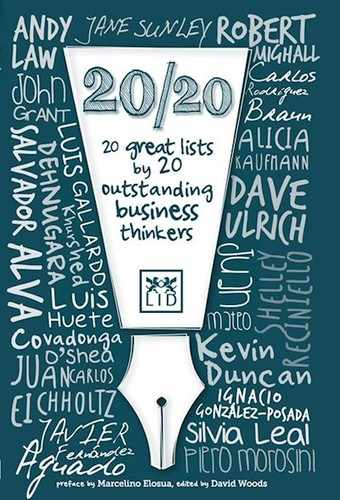6.
THE PRETENCE OF KNOWLEDGE
“It’s not a good idea to take a forecast from someone wearing a tie.”
When Friedrich Hayek won the Nobel Prize for economics in 1974, he entitled his winner’s speech “The Pretense of Knowledge” and warned against making policy based on the omniscience assumed in classical economic theory. Since then research has consistently shown that there are problems attached to relying on experts’ predictions – because they are often wrong.27
In November 2008, at the height of the financial crisis, after the collapse of the investment bank Lehman Brothers, Queen Elizabeth II visited the London School of Economics. To the crowd of distinguished economists, experts and students, she asked the simple yet devastating question: “Why had nobody noticed that the credit crunch was on its way?”
On 17 June 2009 the British Academy convened a forum with experts, academics and representatives from the City of London, business, regulators and government to debate the answer.
The letter, which was released after an embargo on 26 July 2009, pointed out that for many the crisis was not an unknown. In fact, it was predictable. “Many people did foresee the crisis…There were many warnings about imbalances in financial markets and in the global economy. For example, the Bank of International Settlements expressed repeated concerns that risks did not seem to be properly reflected in financial markets.” It goes on to say that the Bank of England issued many warnings in their bi-annual Financial Stability Reports. There certainly was no shortage of risk managers – one bank reputedly had 4,000 of them.
In fact, it was not an issue of not being given a warning. The letter identifies the problem as an over-confidence in the expertise of the few; the belief that they knew what they were doing and a blind trust in expertise in a complex situation.
“But against those who warned, most were convinced that banks knew what they were doing. They believed that the financial wizards had found new and clever ways of managing risks. Indeed, some claimed to have so dispersed them through an array of novel financial instruments that they had virtually removed them. It is difficult to recall a greater example of wishful thinking combined with hubris… Nobody wanted to believe that their judgement could be faulty or that they were unable competently to scrutinize the risks in the organizations that they managed. A generation of bankers and financiers deceived themselves and those who thought they were the pace-making engineers of advanced economies.”28
The signatories acknowledge that the climate of light-touch regulation, low interest rates and inflation also contributed to the situation. The letter makes it clear, however, that although each individual that played a role was perfectly intelligent, this was a collective failure in which hubris, herd psychology and blind faith in experts played a key role.
Alan Greenspan, the then Chairman of the Federal Reserve of the US, acknowledged the challenge of predicting the global financial crisis: “The Federal Reserve was as good an economic organization as exists,” Greenspan said. “If all those extraordinarily capable people were unable to foresee the development of this critical problem . . . we have to ask ourselves: Why is that? And the answer is that we’re not smart enough as people. We just cannot see events that far in advance.”29
Even though we might not want to admit it, human beings have severe cognitive limits. Take chess. Most people would agree that a grand master of chess (as of 2013 there are only 1,441 in the world30) has extraordinary cognitive abilities, especially in chess. Yet a grand master can only think 10-15 moves ahead in chess, a game with fixed and consistent rules. Compare a game of chess with that of the world economy. It is folly to imagine that any person, or even 4,000 risk managers, could possibly see ahead to accurately predict the movements in markets – markets where millions of individual actors make millions of intersecting choices that are both rational and irrational, predictable and chaotic.
Gerd Gigerenzer, Director of the Centre for Adaptive Behaviour and Cognition at the Max Planck Institute in Berlin, marvels at the way people still blindly trust their financial advisors, clinging to the belief that other people can predict the future for them. Once a year, financial institutions conduct their annual forecast of the movements of the Dow and US dollar exchange rates, yet, as he reminds us: “their track record is hardly better than chance. We pay $200 billion yearly to a forecasting industry that delivers mostly erroneous future predictions.”31
The experts were not the ones who understood and predicted the global financial crisis of 2008. As Tetlock (the fox and the hedgehog concept, (see page 42) shows, experts are normally the worst at making accurate predictions – the world moves faster than they are willing to acknowledge and when experts are challenged, they rarely admit that they are wrong, instead blaming changing circumstances.32
We acutely feel the pressure from those around us to mask our incompetence and inadequacy, to pretend that we have the answers, even when we don’t – or we need to believe that someone else does. We look to the experts and assume that they know what they are doing. Sometimes even when the evidence is to the contrary, we would rather believe in someone else’s false certainty than question it and use our own judgement. Nowhere is this dependency more acute than in our relationship with leaders.
